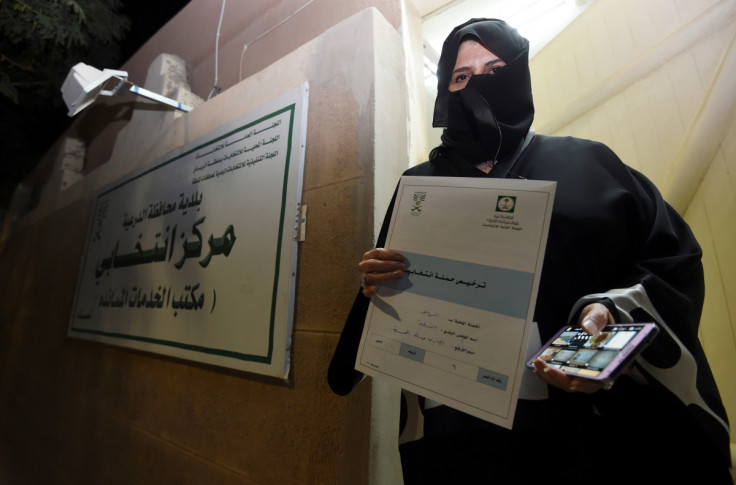900 women run for office in Saudi Arabia's first female-inclusive elections

Saudi Arabia's municipal election scheduled for 12 December is set to be a historic one. It is for the first time in the kingdom's history that women will be allowed to vote as well as run for office.
In the ultra conservative country, laws, rights and freedoms for women differ from those for men. For example, women are not allowed to drive cars or travel without the permission of a male guardian. However, the late ruler Abdullah's move, back in 2011, to allow women to get involved in the electoral process is being seen as a progressive step and a win for women's empowerment groups.
As of now, women can only participate in the elections at the municipal level. Besides, they are neither allowed to use their image on their candidacy applications nor allowed to address male voters directly. But this has not deterred them one bit. Already, 900 women have submitted their campaign applications to run for office.
"This is hugely significant," Hatoun al-Fasi, a professor of history at King Saud University and long-time women's rights activist told The Media Line. "We have over 1,000 women convinced they can make a difference and who convinced their families to be part of this experience."
The path has not been easy for many of these women; a number of them were forced to drop out of the race due to pressure from their families. For many others, this small step is of no consequence as they feel the move was made more to appease the international community.
"Psychologically speaking it's good, but in terms of changing the reality on the ground it won't change anything," Ali al-Ayami, the director of Center for Democracy and Human Rights in Saudi Arabia, (CDHR) told The Media Line. "It is just to silence their critics. These councils don't have any power."
Over the past few years, Saudi Arabia has allowed a number of women to pursue their education and has also permitted many of them to travel abroad for further studies. Many of the candidates come from this young, well-educated pool of women who hope to bring about change, no matter how small.
"I'm not excited by the idea of winning," Loujain al-Hathloul, who was released after spending 73 days in prison earlier in the year, told The Telegraph. She had been jailed for taking part in the campaign to allow women to drive. Now, she is one of the lead candidates for Riyadh District 5. "I'm focussed on increasing the number of women who stand in elections."
The late ruler Abdullah had also issued a royal decree in 2013 mandating that the Consultative Council, a royally appointed body that advises the king, comprise of at least 20% women. However, activists are now worried for the future of women's freedoms and rights considering King Salman, who took over following the death of the former king, is a strict conservative.
© Copyright IBTimes 2025. All rights reserved.






















